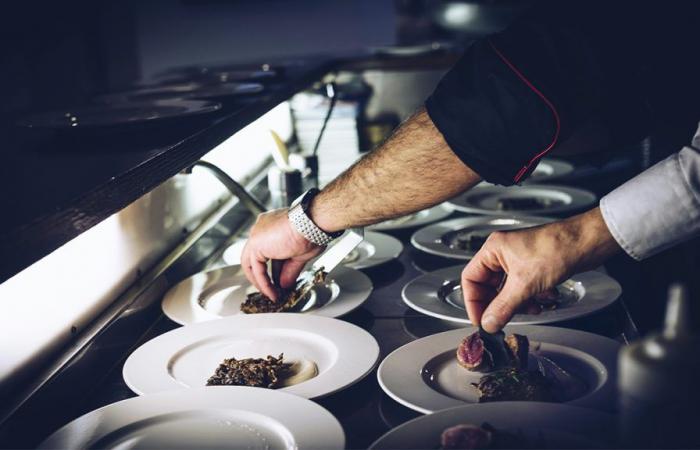“I have been surfing Moore’s Law for more than thirty years (the number of transistors on a chip doubles every two years) while others drown,” Mario Nemirovsky, former chip architect for General Motors and Apple, today at Innova IRV in Malaga, tells me. . “But after attending the recent conference for the 40 years of IMEC, when I look back from my wave, what I see is something indescribable, enormous: the processing capacity is going to be multiplied by 20, what is coming is from another Magnitude order”.
Increasing automation, thanks to artificial intelligence (AI) and incredible new processing capabilities, will change many of the professional roles we are familiar with.
Julie Garland, founder and CEO of Avtrain, recently wrote for Eurocontrol that, in the early stages of advanced air mobility (AAM), regulators will want pilots on people transport planes. “But will they be pilots as we know them? Will they even be called pilots? Given the autonomy levels of these new generation aircraft, should they be redefined as systems operators?”
At the Aspen Ideas Festival being held these days, one of the speakers at the “Food as Medicine” round table is Jerome Adams, Surgeon General of the United States for four years. When they encouraged him to prioritize among the multitude of urgent requests he received, he confesses, he insisted on “the need to go to the fundamental causes.”
“And if you talk about diabetes, cancer, hypertension, asthma… among those causes is what we eat. Only 20% of your health is determined by the hospital or clinic, the other 80% depends on your community, on things that happen outside the health system,” he says.
Upon leaving office, Adams had plenty of offers on the table, but he chose Purdue University, which, curiously, does not have a School of Medicine. It does have the second Veterinary School in the country, “we are literally designing your food, we talk about how to feed a cow to change its nutritional content.”
Purdue has also managed to rank its biomedical engineering school as number one in the world. Adams does not need more: “we design the devices that interact and give us data.”
Health spending in the United States has increased in the last ten years from $2.8 to $4.3 trillion, but life expectancy has remained flat. “More money is not buying more health. How do we increase health and not sanitation?”, asks Shinjini Kundu, a researcher at The Johns Hopkins Hospital, at the opening ceremony of the Aspen Ideas Festival. Her answer is AI.
Before falling into disgrace, following an investigation by The New York Times Regarding their tendency to inflate expectations, MIT researcher Caleb Harper, director of the Open Agriculture (OpenAG) Initiative (and speaker at a past Aspen Ideas Festival, by the way), imagined machines that produced tomatoes under the conditions prescribed by a responsible for health for each specific person.
The dream today is called “medically adapted food,” in the words of Corby Kummer, executive director of the Food and Society Program at the Aspen Institute, and the task of politicians should be to make it accessible and economically acceptable.
Technology, of course, will not be the problem, as long as it is profitable to scale the innovations that appear on the market. Many Industry 4.0 applications are landing in kitchens; AI-guided kitchen robots already exist. But let’s remember that behind the wave we were surfing, the mother of all computational tsunamis appears. So, in the future it is likely that we will also have to think of another name for chefs and restaurants.
In the recent Kitchen Innovation Awards that took place at the National Restaurant Show in Chicago, the robotic solution for cooking hamburgers was recognized, for example. Alpha Grill by Aniai. It has an AI based on its ‘Alpha Cloud’ cloud, capable of accurately detecting the color of burgers and evaluating their quality in real time, using advanced vision sensors. This is something else.
If the customer prefers to collect their order, they can do so in a system OrderHQ from Apex Order Pickup Solutions, equipped with an air circulation system for which it has applied for a patent and which keeps it at room temperature. It incorporates multiple technologies to automate off-site order management, security, detection, and transfer.
Atosa has created a new robotic automatic potato chip seasoning and packaging station with a robotic arm. AND Cervizifrom Wild Goose Filling, is more than just a beer tap: it collects data to optimize business operations and increase bar revenue.
The professional oven manufacturer UNOX, which counts many Michelin-star restaurants among its clients, has been awarded for the new generation of ChefTop-X. It includes AI that interacts with the chef, an advanced operating system and a microphone that allows voice control. It recognizes food and starts cooking programs automatically thanks to an optical sensor.
Ultimately, technology will allow us to expect something different from places where food is processed. Whether the presence of medically adapted food on restaurant menus will score points in the judges’ visits to the Michelin Guide remains to be seen. “We can forgive a man for doing something useful as long as we do not admire him,” wrote Oscar Wilde. He is excused, in his time there was no artificial intelligence.













